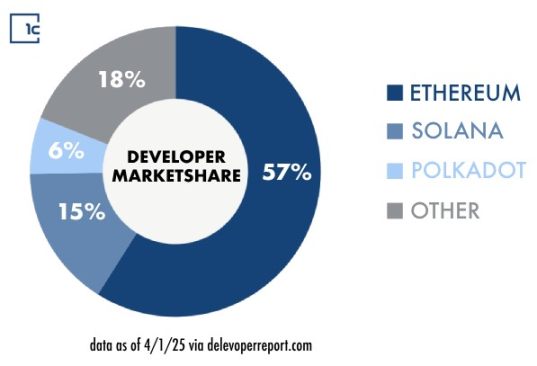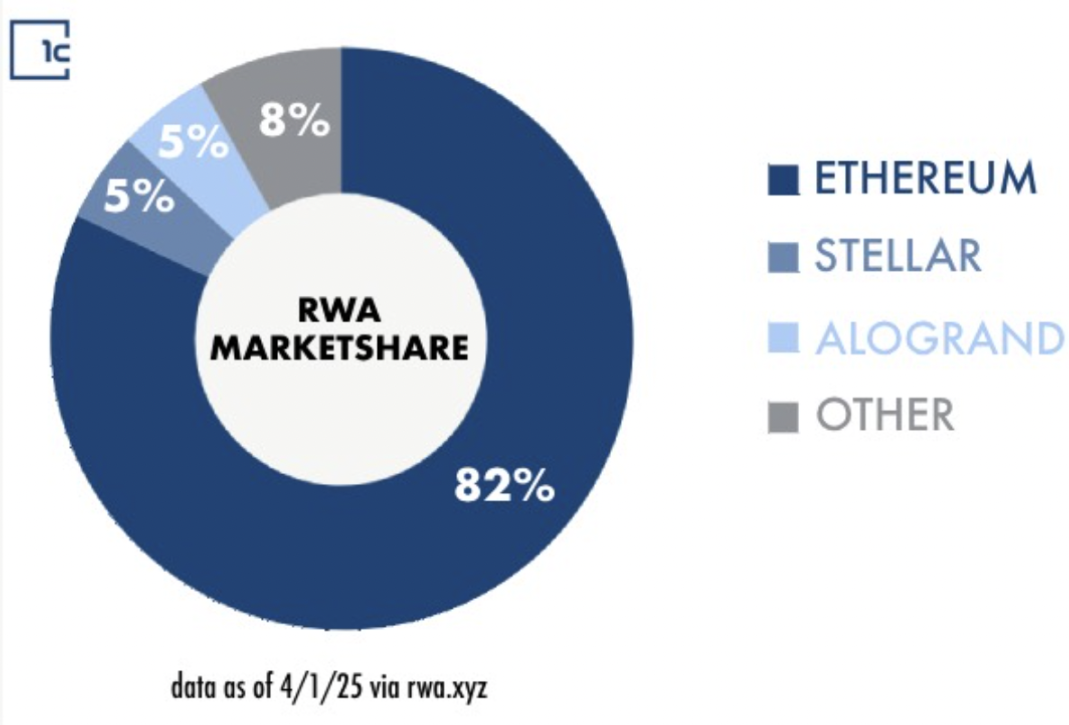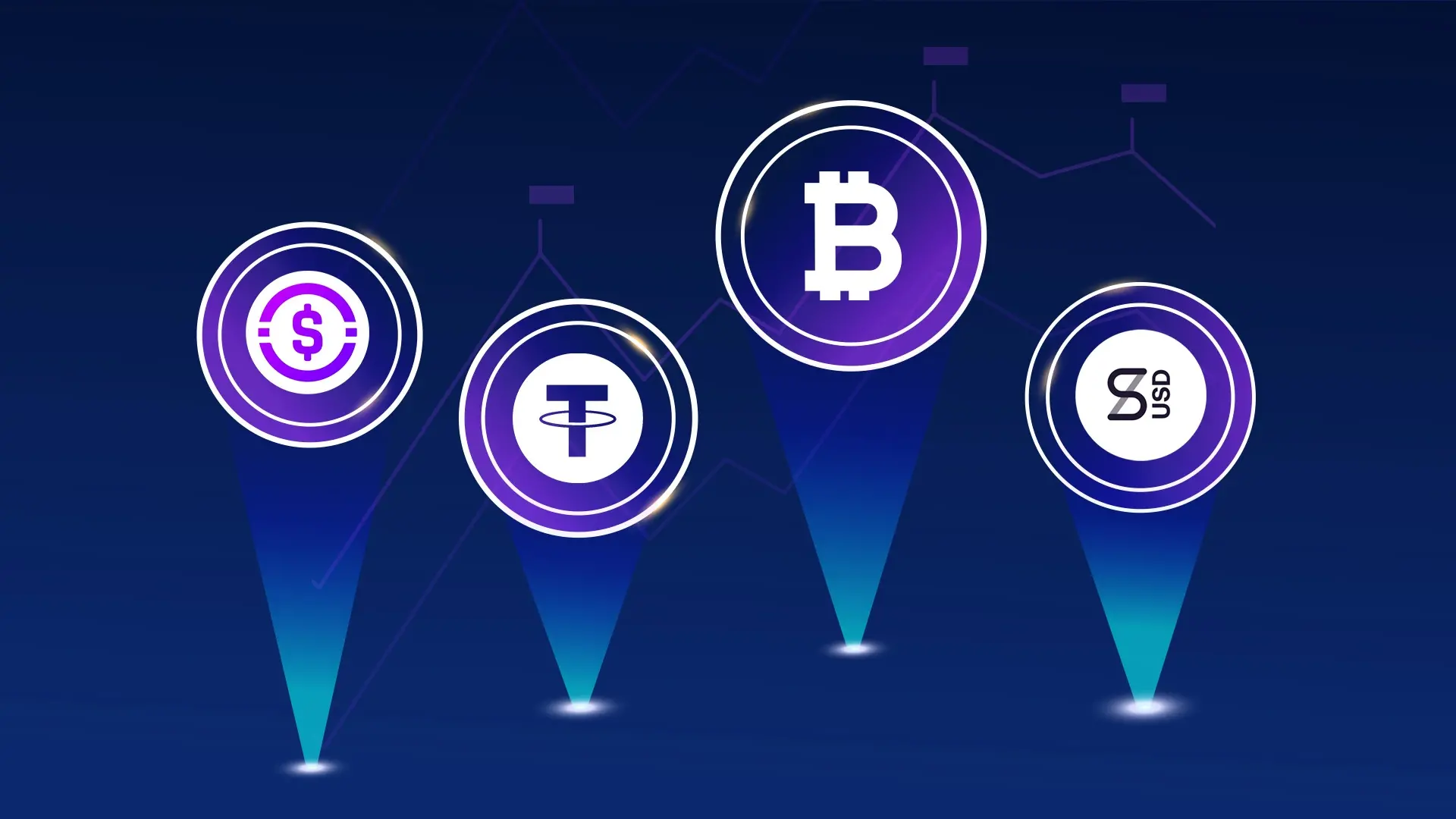1confirmation founder: Social scalability and the potential of Ethereum

Reprinted from panewslab
04/04/2025·1MSocial scalability is an important factor in Bitcoin’s success and will also be the greatest opportunity for Ethereum in the future.
Written by: Nick Tomaino, Founding Partner of 1confirmation
Compiled by: Luffy, Foresight News
Social scalability refers to an institution’s ability to engage as many people as possible and make a profit. This feature is the core driver of cryptocurrencies today that they can become the asset class with a total market value of up to $2.9 trillion. In this post, I will explain what it is and why it is so important.
In 2017, Nick Szabo published an article titled "Currency, Blockchain and Social Scalability" describing Bitcoin as a social breakthrough. Most people simply regard cryptocurrencies as technology and focus on technological scalability, but I agree more with Szabo. Technology scalability plays a certain role in social scalability, but is not a major factor. In the long run, the most successful cryptocurrencies will be those that provide the most practical value through trustworthiness neutrality, thus achieving social scalability.
1. The social scalability of Bitcoin
Bitcoin is the first trusted, neutral, native Internet-based storage of value. The so-called "trustworthy and neutral" refers to fairness, unbiasedness and unaffected by small groups. Trustworthy neutrality is a social construction that is often based on technology, but ultimately based on many dynamic factors that influence people’s trust.
This credible neutrality is gradually won by the Bitcoin protocol over time, and Bitcoin was initiated by the private sector from the very beginning. Bitcoin is launched as an open source software, and anyone can read, run, write and own it on a level playing field. Its launch is fair, and no private deals are given to insiders, nor any well-known persons, companies or states involved. The rules were established from the beginning and never changed. The community openly discusses everything about Bitcoin in forums like Bitcointalk. If you want to understand its spirit, read Hal Finney’s early remarks.
The credible neutrality and practicality of Bitcoin are the main reasons for the growth of the crypto industry. At first, Bitcoin was just a grassroots movement initiated by the founder of the pseudonym Satoshi Nakamoto, with no insider holdings, no clear jurisdiction of origin, a new product for anyone in the world, and now it has become a $1.7 trillion asset that some of the world's largest governments and companies are actively using as a store of value. The rules of the Bitcoin system are still difficult to change, which is an important reason why it is being adopted continuously.
Bitcoin’s development is amazing, but the early cultural decisions made by the community that focused only on the functions of money have limited new Bitcoin developers and companies to use it in more areas outside of currency. Although Bitcoin’s biggest players have claimed over the past 15 years that Bitcoin has unlimited potential, decentralized systems do have huge opportunities to bring more freedom and progress to the world besides being in the currency field.
2. Is social scalability really important?
Social scalability is an important factor in Bitcoin’s success, but in 2025, a question that any investor must ask is: Is social scalability really important? Today, among the top nine cryptocurrencies in total market value, four are actually "company tokens" (XRP, BNB, SOL, TRON). The total market value of these four coins exceeds US$312 billion.
These tokens have strong narratives, but they do not gain credibility neutrality. They are launched by small teams in known jurisdictions (Silicon Valley and China) and allocate more than 50% of the tokens to insiders (founding teams and venture capital institutions). They conduct highly coordinated marketing activities, insiders participate in government lobbying, and conduct many corporate top-down activities. These protocols have not proven themselves to be resilient, secure, and resistant to single point failures. They make radical trade-offs for performance, sacrificing decentralization.
Then, let's discuss their practicality. Some people find these four protocols useful, but they have not yet spawned new use cases and have not been widely used. Anyway, these four tokens have achieved amazing success and there is reason to think that what I mean by social scalability is irrelevant. If you can build a narrative and make enough people believe it, that seems to be what really matters.
However, I think social scalability is crucial in the long run and will bring over $2 trillion in value accumulation over the next decade. That's why we focus on it. If you are focusing on shorter time periods, I can understand why you might disagree. But I encourage you to look at it from a more macro perspective.
Time will tell, and things may change. If you agree that social scalability is crucial and look at the facts, it will be clear that there are only two cryptocurrencies that are both trustworthy and neutral and practical enough to achieve long-term social scalability, that is Bitcoin and Ethereum.
Bitcoin is dominant in the crypto space, but Ethereum may be more socially scalable than Bitcoin. reason
as follows:
3. Trusted neutrality of Ethereum
Similar to Bitcoin, Ethereum's trusted neutrality exists from the very beginning. Ethereum does not have a legendary story of "fair launch" like Bitcoin, but in the initial stage, only 9.9% of its token supply was allocated to insiders, and anyone in the world could easily own Ethereum tokens by sending Bitcoin to an initial coin offering (ICO) address, without giving venture capital institutions any behind-the-scenes transactions, and no well-known people, companies or countries involved.
Ethereum was originally a Proof of Work (PoW) chain and has been using a Proof of Work mechanism for the first seven years, which ensures that token allocation is more balanced before moving to the Proof of Stake (PoS) mechanism. At the beginning, you don’t need to own or buy Ethereum to participate in consensus and get rewards, you just need to contribute computing resources. Native proof-of-stake chains often have the problem of people who hold tokens dominated the token rewards in the early stage. This helped Ethereum have a large and diverse stakeholder early on, and enabled today's wider population to participate in consensus and receive Ethereum rewards.
The founder of Ethereum is Vitalik Buterin. Ethereum critics would accuse Vitalik of leadership and say the fact that he has such a well-known founder with great power has undermined the credible neutrality of Ethereum. But those who have observed Vitalik leading in a transparent and sincere way from the outset know that he established a culture that emphasizes credibility neutrality.
You won't see Vitalik chasing investment narratives on social media, chasing money, attention and power, like many important figures in the crypto space. He has been the easiest person in the industry to get all of this for the past decade, but he hasn't done so. Instead, he acts his own way, emphasizing values such as censorship resistance, inclusion, and transparency, and focuses primarily on setting the best technical architecture and long-term values for developers.
In fact, Bitcoin and Ethereum are governed the same way. Modifying the protocols between Bitcoin and Ethereum requires rough consensus between miners, users and developers, so Ethereum is much slower to upgrade than many venture capital institutions hope. But in the long run, this helps to enhance its credibility and neutrality, and it is a trade-off that Ethereum’s leadership has made.
The Ethereum mainnet now has 4 execution clients (Geth, Nethermind, Besu and Erigon) and 5 consensus clients (Prysm, Lighthouse, Teku, Nimbus and Lodestar) actively maintained. Client diversity and avoiding single point failures have always been the focus. In addition, Ethereum mainnet and L2 have become the most trusted building platforms for developers and companies.
Today, Michael Saylor's company owns Bitcoin, which accounts for a much higher share of the total Bitcoin supply than the Ethereum tokens owned by Vitalik and the Ethereum Foundation, which account for a total Ethereum supply. Bitcoin leaders have allied with the government faster by supporting politicians and lobbying. This may be because Bitcoin has grown more maturely and attracts a wider stakeholder base than Ethereum.
But the risks of Saylor and the government lobbying to harm Bitcoin’s credible neutrality are real, and it is encouraging to see the urge to chase investment narratives to cope with the market environment. Ethereum's leadership is focused on developers, and Ethereum is now far beyond any individual or group. For the future of Ethereum, the most important person is likely to be the unknown developers today.
4. The practicality of Ethereum

Ethereum virtual machines (EVMs) dominate the market share and have a strong network effect: Ethereum has occupied a major mental share in the developer community and has become the birthplace of innovation that introduces a large number of new users into the crypto field, besides currency. Ethereum is the birthplace of decentralized finance, non-fungible tokens (NFT), forecast markets, decentralized social networks, decentralized identity, real-world assets (RWA), stablecoins and other fields. All these new use cases promote EVM wallets and Ethereum as trusted, neutral, internet-based native storage of value.
Some of these use cases, which initially started with the Ethereum mainnet, are now moving to the L2 blockchain built on top of Ethereum. Many excellent companies and developers who develop in the crypto field prefer a trusted developer environment that gives them more control and better economic benefits than on the L1 blockchain, which is exactly what the Ethereum L2 architecture provides. People who develop on L2 or L3 can not only gain more benefits in it, but also enjoy the security of Ethereum and the network effect of EVM, and promote Ethereum as a trusted, neutral, and native value storage means based on the Internet. Some L2s will flourish, some may not. For some use cases, developers may realize that on the mainnet, you can get a significant liquidity advantage that L2 does not have. Ethereum is beneficial to either outcome.
There has been a lot of discussion about whether L2 contributes to the value of Ethereum, or will erode the expenses of the main network and reduce the value of Ethereum. Standard Chartered Bank recently lowered its target price for Ethereum from $10,000 to $4,000, citing Coinbase's L2 (Base) will eat away at the expense of the main network. This view only shows that the trees do not see the forest.
The main benefit of L2 is not to contribute costs to the main network, but to promote EVM wallet to new users and promote Ethereum as a trusted, neutral, Internet-based native value storage means. The use of the Ethereum ecosystem (including the mainnet and L2) can reduce the supply of Ethereum, which is a good feature that has made Ethereum more deflationary than Bitcoin. But the cost is not the main benefit of the application and L2.

Ethereum has dominated the market share in stablecoins, real-world assets and NFT: Ethereum is now the main ecosystem for new developers and large companies such as JPMorgan Chase, BlackRock, Coinbase, Robinhood tokenize assets. This trend began with crypto-native assets like homogeneous tokens and NFTs, but is now increasingly touching the U.S. dollar, Treasury bonds, stocks, bonds, private credit, real estate and more. Whether these activities occur on the main network or on L2, and how much L2 pays to the main network in the end, will affect the amount of Ethereum destruction. But even if all these activities occur on L2 and L2 pays very little to the main network, the popularity of these use cases will promote Ethereum as a trusted, neutral, native Internet-based storage of value.
5. Opportunities worth over 100 trillion US dollars
Trusted neutral, native Internet-based storage of value is the largest market opportunity in the world today. The total market value of gold is about US$20 trillion, and the global broad money supply (M2) is about US$100 trillion, so it can be said that this is a market opportunity worth more than US$100 trillion.
Cryptocurrencies that achieve social scalability through trustworthiness neutrality and practicality have the best chance to seize this opportunity. There is no strong narrative around this at the moment, but I learned from experience in life and crypto that usually the stronger the narrative, the further away from the truth. Those who focus on their core goals and resist chasing short-term urges to gain benefits will be rewarded.



 chaincatcher
chaincatcher